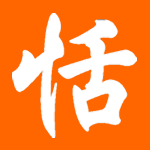From reader "Angela S.":
"Hey Tian, I come across with a photo of Marcus Camby. I'm sure he means well when he gets that tattoo. But for me as a native Chinese speaker, I feel I wouldn’t be able to understand the tattoo without some explanation. I think non-native Chinese speakers have to understand that some English phases just don't translate well into Chinese."
I agree with Angela S. on this issue. Usually the character 族 is used in Chinese referring to a certain ethnic group. In this case, without any detailed explanation, Camby's tattoo means he is a member of the 勉 ethnic group, which is nonexistent.


Hi
ReplyDeleteI was told Marcus Camby's tattoo means "the idea of forcing yourself to do the right thing even if you don't want to"
The character 勉 mostly means "exhort" in Chinese; and in Japanese, it means "diligence".
ReplyDeleteBetter yet, in ancient times, 族 meant a death penalty placed on an entire family (as in wiping them all out). I'm not sure he meant this, but it could be read as "doing everything possible to kill the entire family".
ReplyDeleteVery good.
In Chinese, 族 can mean "race" or "ethnicity" or "tribe". It can also refer to a social subdivision - a group - such as 上班族 ("go-to-work tribe", meaning "nine-to-fivers" or "those who go to work every day") or 白髮族 ("white-haired tribe", meaning "senior citizens").
ReplyDelete勉 means "to strive", "to force oneself to do something" or "to push oneself beyond one's capacity".
So 勉族 could mean "those who strive", so perhaps he considers himself a member of a group who push themselves to succeed.